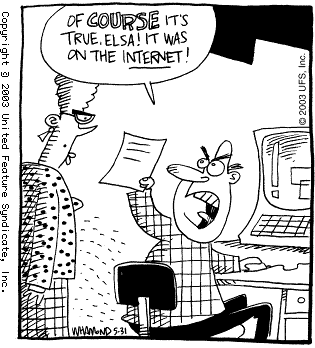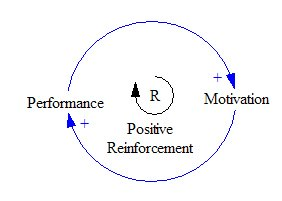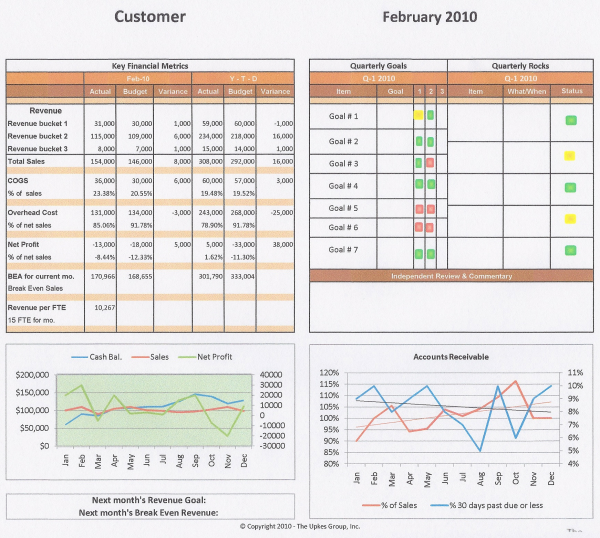Have you ever had your spouse, a supervisor or manager say something like the following to you? “Doug you did a great job on …., but you really need to work on…...”
Strategic Discipline Blog
Topics: Bringing Out the Best In People, Aubrey Daniels, meeting rhythms, positive reinforcement
Maybe it’s because my first measurement of my common sense came from a personality test designed to evaluate my sales capabilities and it exposed me as being naive. Naiveté is the exact description for what I had in their test. In the Objective Management Group of Sales Evaluations we use today (much more scientific) this measurement might have been classified as being too trusting of clients (believe prospects are honest) or not asking hard questions, which is a Hidden Weakness for Record Collection and Emotional Involvement.
Topics: Bringing Out the Best In People, employee performance, Aubrey Daniels, scientific knowledge, common sense
Three Sources of Positive Reinforcement and One You’re Overlooking
Posted by Douglas A Wick on Wed, Sep 26, 2012
We’ve discussed positive reinforcement many times in this blog including my last one on Grandma’s Rule and How the Best Managers and Leaders Deliver Positive Reinforcement.
Topics: Bringing Out the Best In People, Aubrey Daniels, positive reinforcement, Management-Related Reinforcement
Positive Reinforcement: Grandma’s Rule Gets Me Home Again
Posted by Douglas A Wick on Mon, Sep 24, 2012
Thursday of last week my Doctor used Grandma’s rule for positive reinforcement on me to ensure I was able to go home on Friday. “As long as you don’t get a fever or have any other complications overnight, we’ll be sending you home tomorrow.” He offered.
Topics: Acute Myeloid Luekemia, Bringing Out the Best In People, Aubrey Daniels, positive reinforcement
Kevin the Terrible and the Myth That People Resist Change
Posted by Douglas A Wick on Thu, Mar 15, 2012
At the close of Monday’s blog, “Can Routines Really Set You Free?” I promised to discuss a myth that Aubrey Daniels addresses in Bringing Out the Best in People.
Topics: Acute Myeloid Luekemia, Bringing Out the Best In People, employee engagement, employee performance, People, Aubrey Daniels
Each of us is different. We are not all motivated by the same thing. It’s a lesson that Aubrey Daniels consistently reinforces in Bringing Out the Best in People. It’s the reason managing people is so challenging. It requires thoughtful observation, persistent communication and enduring energy to discover and maintain relationships that support and encourage your people to be their best each day.
Topics: Bringing Out the Best In People, employee engagement, Aubrey Daniels, human behavior
How the Best Managers and Leaders Deliver Positive Reinforcement
Posted by Douglas A Wick on Mon, Sep 19, 2011
Small things add up. When it comes to producing results from positive reinforcement a small difference influences results dramatically. Most effective leaders, managers, and supervisors do not necessarily reinforce more often than ineffective ones. It’s the detail of what they focus on that makes them better. Discipline to this detail compounds over time. It delivers steady pressure on the fly wheel which Jim Collins notes distinguishes the Good to Great companies. Eventually it provides the impetus to breakthrough. There is no miracle moment. Breakthrough only comes through daily discipline of doing the right things right.
Topics: Employee Feedback, Bringing Out the Best In People, employee performance, Aubrey Daniels, positive reinforcement
Topics: Bringing Out the Best In People, themes, employee performance, People, positive reinforcement, negative reinforcement
Topics: Bringing Out the Best In People, positive reinforcement, Pearsons Law, metrics
Are you one of those people who says, “Whenever I hear “discipline,” I tune out—the last thing I want is bureaucracy mucking up my entrepreneurial business.” How will Strategic Discipline improve performance without crushing creativity?
Topics: Discipline, Bringing Out the Best In People, employee performance, measurement, The Compound Effect















.jpeg?width=150&height=135&name=Hand%20with%20marker%20writing%20the%20question%20Whats%20Next_%20(1).jpeg)

